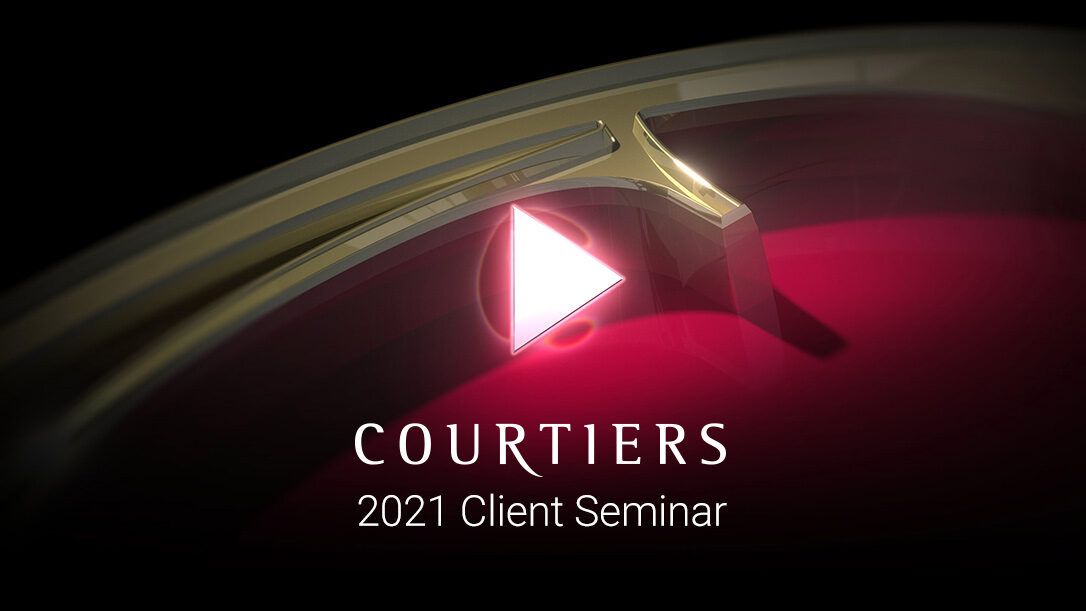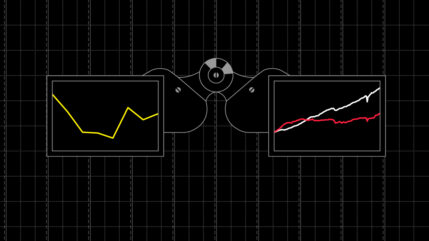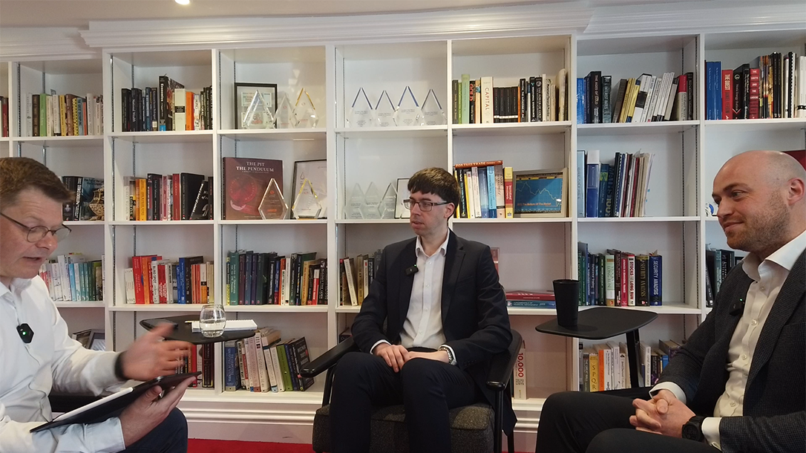The Courtiers 2021 Client Seminar took place at four venues across the country, between December 3 and December 16.
The first was held near Burton upon Trent in Derbyshire, the second in Henley-on-Thames, the third in London, with the final seminar taking place at Courtiers Auditorium in Witney, Oxfordshire.
Following the speakers’ presentations, written summaries of which are below, the Courtiers Investment Team took questions from the audience during a 20 minute Q&A Panel. The Client Seminar held at the London Marriott in Grosvenor Square was broadcast online, allowing clients to tune in and ask questions virtually alongside the audience in the room. Watch this Client Seminar above, which includes all presentations followed by the Q&A panel held on the day.
Thank you to everyone who attended the Seminars and everyone who shared comments and questions for consideration. Those we didn’t manage to answer (and those we did) will all be put to the Investment Team, with a view to publication in early 2022.
2021 Global Markets & Courtiers Fund Performance
(James Timpson, Deputy Fund Manager)
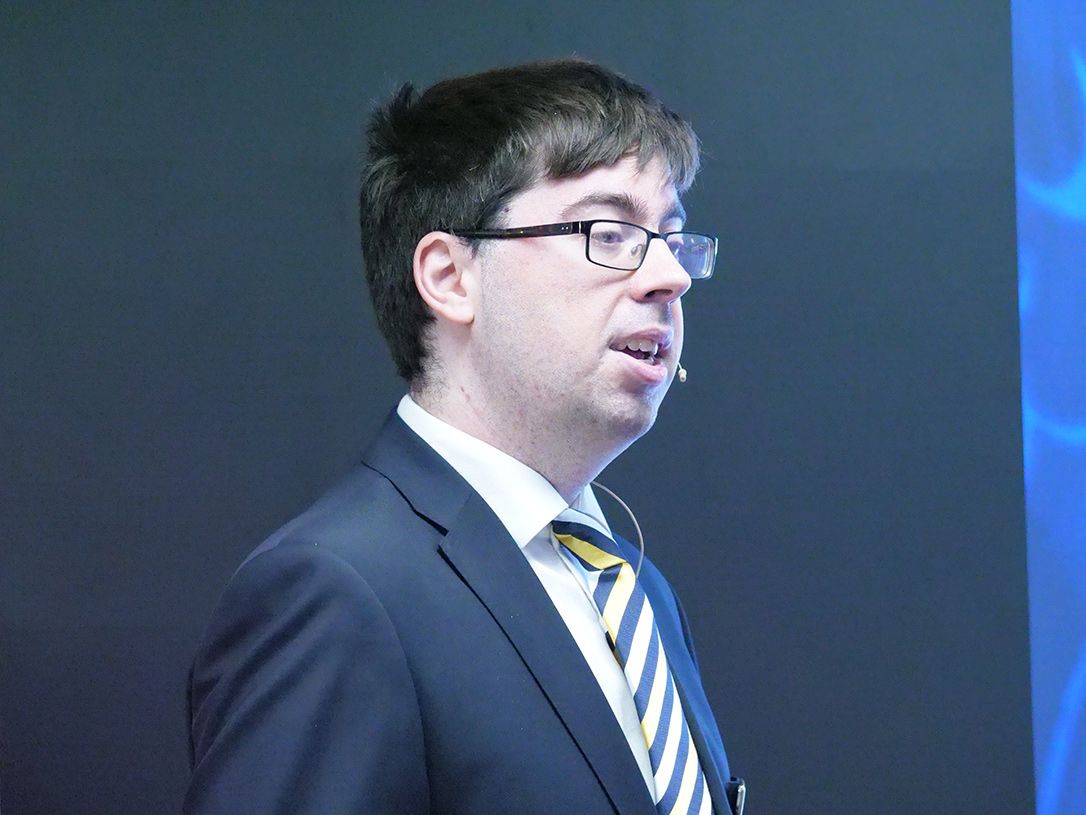
James opened his presentation by remarking what a year it’s been. A year in which England came close to winning the Euros, and we finally got to see the latest James Bond film (James is an aficionado). It had also been a great year for markets, he added.
The road to recovery
Following the market turmoil of the previous year when a certain viral disease caused markets to crash more than 30% in one month, this year had seen markets recovering to above pre-pandemic levels, and they have continued to rally.
While James said markets have been fairly volatile, they had been nothing like as volatile as last year. So, while in 2020 the global equity market moved either up or down by more than 2% on forty days, this year this happened on only three days. Overall, James said it had been a really positive year for global equities.
Courtiers Funds – 2021 a year of outperformance
As the figures below show, returns from all of Courtiers six funds were higher than the average for its peer group (a collection of funds with a similar risk mandate). Unsurprisingly James said the Investment Team were really pleased with this performance.
- Courtiers Total Return Cautious Risk Fund 10.7% v 8.3% for IA peer group
- Courtiers Total Return Balanced Risk Fund 14.8% v 12.1% for IA peer group
- Courtiers Total Return Growth Fund 19.1% v 12.9% for IA peer group
- Courtiers UK Equity Income 29.6% v 17.1% for IA peer group
- Courtiers Global (ex-UK) 21.2% v 16.7% for IA peer group
- Courtiers Investment Grade Bond Fund 0.5% v -0.7% for IA peer group.
Figures cover period 30 November 2020 to 30 November 2021. Past performance is not a reliable indicator of future returns.
Play Your Markets Right
James is a big fan of game shows, and as someone who once appeared on Countdown, James was the perfect host for Play Your Markets Right. The game tests the audience’s knowledge of markets, by asking them to compare the returns of a series of markets and assets classes and say which performed better in 2021. The strong performance of US equities (+27.4%) and UK equities (+16.8%) was much as the audience expected. However, it was an underwhelming year for gold, and its negative return of 0.2%, only marginally better than UK gilts (-1.0%) elicited some mild surprise. Gold is traditionally seen as a reliable hedge against inflation. In contrast the price of copper surged by 28.1%.
James’s Talking Points
Having covered the recovery of global stock markets earlier, James moved on to his other big talking points from 2021.
Cryptomania – a massive year for cryptocurrencies, with Bitcoin the largest reaching all-time highs in 2021. Described by some as a safe-haven, with levels of volatility five times higher than the FTSE 100, James was sceptical, saying he didn’t see it himself.
Rising energy prices – As the world economy gradually reawakened from the pandemic, demand for fuel rose, and here in the UK panic buying ensued. The price of crude oil recently surpassed $80 a barrel. There was an even bigger spike in the price of natural gas.
This led naturally into the next bout of audience participation, a sort of quiz in which James asked whether certain items had been added to or removed from the basket of goods and services that makes up the Consumer Prices Index during the year. Hand sanitizer and dumbbells were obviously in. But ground coffee was out, replaced by coffee sachets
Supply shortages – with many factories and ports closed during lockdown, the global supply was broken and not able to meet rising demand for goods. A global shortage of semiconductors and microchips led to a massive slowdown in manufacturing, with car production hit particularly hard.
Inflation – Inflation reached its highest level for a number of years. UK inflation as measured by the Consumer Prices Index hit 4.2% in October, its highest level since 2011. US inflation was even higher, reaching 6.2%, a figure not seen since November 1990, when the World Wide Web didn’t exist. And nor as James helpfully pointed out did he.
Meme Stocks – These are typically companies that are struggling financially, but which then see a massive surge in popularity driven by social media sites, which results in their share price rocketing. These stocks proliferated in 2021. In just one month, shares in GameStop, the world’s largest video game retailer rose by 1,625%, its price driven up by traders on online discussion site Reddit.
Real or Fake?
Moving on from the supply to the ridiculous, as James put it, the popularity of cryptocurrency gave him the idea for another game. The idea was a simple one. James read out the names of possible cryptocurrencies and asked the audience whether it thought the cryptocurrency was real or fake While the audience had little trouble guessing Epic Cash as real, Sushi (real) and Castle Coin (Fake proved more problematical). Titcoin (Real) developed as an anonymous means of payment for the adult entertainment industry attracted a few titters. Panda’s Figs (Fake) an anagram of Passing Fad perhaps best summed up James’ own view of cryptocurrencies.
Stock Selection in Action
(Jacob Reynolds, Head of Asset Management)

Courtiers Head of Asset Management, data analyst and Formula 1 Motor Racing geek, Jacob (aka Jake) took the audience through Courtiers approach to selecting stocks.
Borrowing from one of the several whimsical sayings of legendary US Investor Warren Buffett that he used during his presentation, Jake explained that as value investors, “whether it is socks or stocks”, Courtiers “likes buying quality merchandise when it’s marked down.”
Jake then went through compelling research evidence from Nobel-winning economist Eugene Fama and his colleague Kenneth French. Their research showed that since 1974 the value approach has outperformed a strategy of buying the most expensive stocks. Overpaying is a huge risk to the portfolio, which is why you will not find expensive US tech stock in Courtiers funds.
Stock selection in action
Academic research and theory is one thing. However, as Jake went on to demonstrate, in the practical world of investment management executing a value strategy can make a big difference to fund performance. Using a value approach, the Courtiers UK Equity Fund has been the top fund in its peer group since its inception in 2015, and returned close to 30% this year, making it the top ranked fund in its IA sector.
Specific stocks
Moving on to specific stocks within the Courtiers Funds, Jake began by talking about Reach, formerly Trinity Mirror. Courtiers originally bought Reach in 2018 when its price per share was around three and a half times earnings. This compares with a typical earnings multiple of between 13 and 15. While others saw Reach as a legacy company, Jake says Courtiers viewed it as company that was embracing the digital age. After riding the stock’s re-rating, Courtiers sold it during 2020 after its price rocketed up to 10 times earnings and it no longer qualified as a value stock.
Another stock that delivered for Courtiers investors was Royal Mail. Jake explained that the original rationale for buying had been faith in Rico Back, the company’s CEO at the time. And although the company did well, benefitting from an increase in parcels during the pandemic, Back’s departure in May 2020 led the Courtiers Investment Team to carry out a review. With concerns over the company’s governance and the new management’s ability to control the unions, the stock was sold.
Another stock with a long history, where Courtiers see value is Marks & Spencer. Starting life in Leeds as a Penny Bazaar, this former darling of the Stock Market in the 1990s had fallen on difficult times. But impressed by changes made since 2017, such as return to quality wardrobe staples and higher profit margin stores, Courtiers bought the stock in April. Jake emphasised that the decision to buy had only been taken after the investment Team had seen real evidence of a turnaround. So far, it has proved to be a good decision, and the stock is up around 50%.
Under constant review
Jake explained that the Investment Team is reviewing companies all the time, looking at fundamentals, such as dividends, strong earnings, good cashflow and solid balance sheets. Increased use of AI (Artificial Intelligence) was allowing the Investment Team to crunch the numbers. And all this at a good price too, of course.
This methodology for selecting stocks does not just apply to the UK Equity Fund, but is also used for Courtiers Multi Asset Funds.
Washtubs not teaspoons
To illustrate this, Jake took the example of US Bank Wells Fargo, whose share price, like those of US banks in general, had in early 2020, been panned through a combination of the pandemic and regulatory change. However, as a bank Wells Fargo was also likely to benefit from rising interest rates. It was too good an opportunity to miss, said Jake referring to another of his favourite ‘Buffettisms’; “Every decade or so, dark clouds will fill the economic skies, and they will briefly rain gold. When downpours of that sort occur, it’s imperative that we rush outdoors carrying washtubs, not teaspoons. And that we will do.” So, in July Courtiers added PacWest, another US bank to its Global and multi-asset funds. So far, Wells Fargo is up around 98% and PacWest around 140%.
A gift to yourself
Jake finished his presentation on a festive note, by recommending some Christmas gifts that would ultimately bring tidings of great joy to Courtiers investors in the form of higher returns. A gift to yourself, as Jake put it. A Samsung phone, an aerial work platform from Linamar, (although a bit hard to wrap, Jake noted), and Colin the Caterpillar from Marks & Spencer were some of his suggestions, with Colin a particularly strong recommendation based on the Investment Team’s extensive research.
ESG: Factored into Courtiers Funds
(Katie Crook, Product Specialist)

The last 12 months has seen ESG investing, which is investing that takes into account Environmental, Social and Governance factors shoot up the agenda of the fund management industry. Katie, who leads the Investment Team on ESG explained that the greater attention being paid to ESG had been driven by a wave of activism, such as that lead by climate campaigner Greta Thunberg. This had brought ESG to the forefront of both investors’ and consumers’ minds. The fund management industry had responded she said, referring to MSCI stating that in October there were 7,500 funds, which have a sustainable mandate.
ESG is nothing new
Despite this greater focus on ESG, Katie said that in fact, it was nothing new, either to Courtiers, or indeed the fund management industry. Courtiers launched its ethical funds way back in 2005, while the term ESG was actually introduced to the industry in 2004.
While Courtiers had been incorporating ESG issues for a long time, Katie explained that to date the focus had largely been on the G in ESG, i.e. Governance. This was based on the belief that good governance and good business go hand in hand.
The only reason Courtiers had focused less on the Environmental and Social aspects of ESG had been lack of available data. However, Katie said this was changing, and by the end of December, there will be 36 companies supplying ESG data on companies.
Data and managing ESG risk
Katie explained how Courtiers had selected a service provider called Sustainalytics to provide it with ESG data on companies. Sustainalytics had been chosen not only because it covers 17,000 companies, but also because the way it operates can be fully integrated with Courtiers own way of selecting stocks. One similarity is that both use a risk-based approach.
She explained how Courtiers analysts take a company’s ESG score and use it in conjunction with its own qualitative metrics to build a bigger and more complete picture. Whether it is how they treat their employees, a company’s business ethics, or taking care of the environment, Courtiers wants to make sure that companies are not just giving lip service to their promises but acting on them. Katie said that essentially Courtiers looks at what a company is doing to manage the ESG risk and what it is going to do in the future.
No exclusions
While some fund managers choose to exclude stocks that fail to meet ESG criteria, Katie explained that Courtiers prefers not to go down that road. Instead, Couriers would continue to invest in companies, who are looking to change and move forward. To exclude certain companies might also mean missing out on those with the capital and technology to drive change. This was one reason why Courtiers invested in Shell.
Drilling down
While a company’s ESG score was useful when selecting stocks, it was just the starting point. Devro, a company that produces collagen cases for sausages and other meat, was a case in point. Despite having the worst ESG score among Courtiers stocks, drilling down into the company by Courtiers analysts revealed a different picture. This found, for example, that the company had reduced its waste to landfill by 91% since 2015. What had given Devro its poor ESG score was simply because it hadn’t formalised its processes. In the last 11 months, Devro had reduced its ESG score by a further 18.5%. Katie pointed out that if Courtiers had gone on the ESG score alone Devro would have been excluded.
Another perhaps ‘unlikely’ company held by Courtiers is Polymetal, a precious metals miner, which scores particularly highly on strong ethical management and engagement with the community. Polymetal also comes out well compared with other companies in its sub-industry.
Hopes for the future
As to the future, Katie looked forward to a standardised process for labelling funds, and better investor education. Building on its existing strong foundations, by the end of 2022 the Courtiers Investment Team hoped to have reviewed every company within its funds against ESG criteria.
Rising Inflation and Interest Rates – a 70’s Repeat?
(Gary Reynolds, Chief Investment Officer)
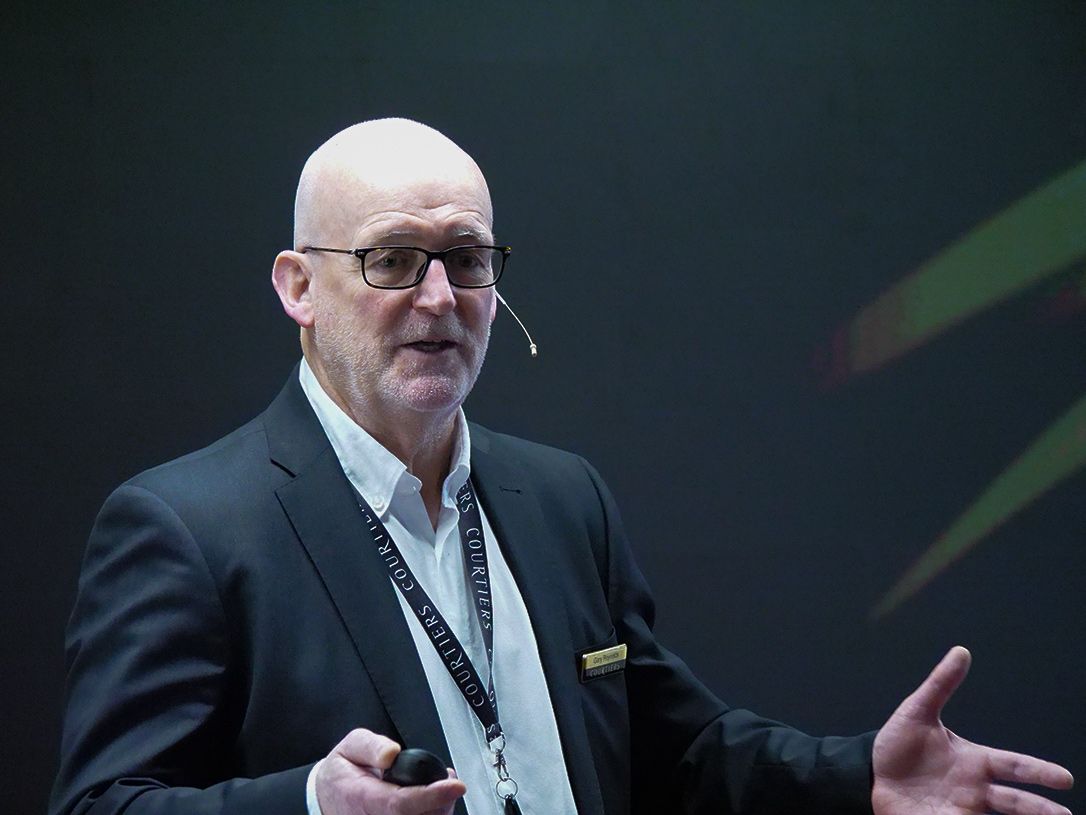
Is history about to repeat itself? What can we learn from it that will help us avoid the mistakes of the past? What should be the role of government? And what will drive the world economy as climate change forces us to switch to new forms of energy? These were some of the weighty questions addressed by Gary during his wide-ranging presentation.
Economic cycles
After telling the audience how nice it was to see them in person once again, Gary began by taking them back to the time of Queen Anne. Economics works in long cycles Gary argued, and generally this results in positive change. So, while in 1700, 56% of people in the UK worked on the land, with large numbers living at subsistence level, by 1998 the number working in agriculture had dropped to just 2%. The number of hours people worked has fallen dramatically. Improvements in technology and innovation mean that around the world hundreds of millions of people have been taken out of poverty, while the proportion in abject poverty has fallen to 10%.
While these long economic cycles drive innovation, productivity and improve the human condition, Gary argued that the big disruptor – at least in the short-term – had been government intervention. And these interventions could be for good or for ill.
Government intervention – the good and the bad
Taking the audience back to 1919 and the Paris Peace Convention, Gary cited John Maynard Keynes, the great British economist, who predicted that forcing the Germans to pay back between $20bn and $30bn in reparations would end in another war. And so, it proved. In contrast, the post-World War II Marshall Plan created the conditions for a doubling of annual economic growth, from a pre-war average of 1.5% to 3.2% between 1947 and 1973.
The present
Gary then moved on to look at where we are today. Yes, there is the pandemic, yes, inflation is rising, and yes, there is much talk of debt. But while he acknowledged these are concerns, he argued things are a lot better than we are led to believe by the press or pundits.
UK household debt was actually in a really good place, with the average amount of household debt standing at less than 15% of their total assets, while the net wealth of the average British family is £420,000. Indeed, the total wealth of British families is so great that just the rise in that wealth over the past four years would pay off the UK national debt. There were stacks of opportunities for consumers to spend money, and he urged the audience to enjoy the wealth they had built up through past prudence.
While UK government debt as a percentage of GDP now stands at 104.5% Gary pointed out that this was only marginally above the long-term average of 94%. And it is less than half the 260% it reached just after World War II. Given that despite historically low interest rates British consumers weren’t spending, and had been adding to their savings during the pandemic, so there was lots of scope for the government to take up the slack in demand by spending more. This demand deficit had been predicted by both Keynes and more incongruously by Karl Marx.
Government spending
Gary used a cartoon by Peter Brooks in the Times showing Rishi Sunak morphing into Gordon Brown to illustrate how the Conservative Party, traditionally the party of small government and lower taxes was actually planning to spend more than the former Labour Chancellor of the Exchequer. In Gary’s view Boris Johnson couldn’t afford not to if he wanted to retain the Red Wall seats, the Conservatives won in the 2019 General Election.
Inflationary times
Moving on to inflation that reached 4.2% in October, before rising to 5.1% in November, Gary explained why we weren’t returning to the 70s, a decade of high inflation. This was only a temporary problem caused by people buying more goods, mainly online during the pandemic. With the global supply chain broken, it was inevitable that inflation would rise. In contrast demand for services plummeted. However, supply chains have the capacity to sort themselves out and as soon as consumers are in a position to switch back to services, the spike will come off the price of goods, he predicted.
The green road ahead
Turning towards climate change and the green revolution, Gary said that with the cost of producing electricity dropping fast, the move towards renewables, such as wind farms and solar panels could be just the catalyst to get the economy going again.
A Peppa Pig future?
After taking his audience on a journey that took in the Treaty of Versailles, the Marshall Plan, Karl Marx, debt, inflation, and renewables, what might we expect next? Well, if all goes well, and we end up with a more productive economy, Gary had just the answer. Peppa Pig World, where everything is wonderful and the only thing to worry about is swine flu.
Gary finished with three key pieces of advice for investors; Keep the duration of any government bonds short, buy assets at reasonable prices, and always always diversify.

